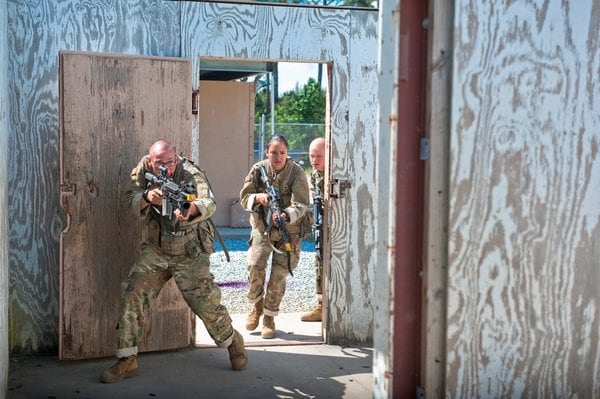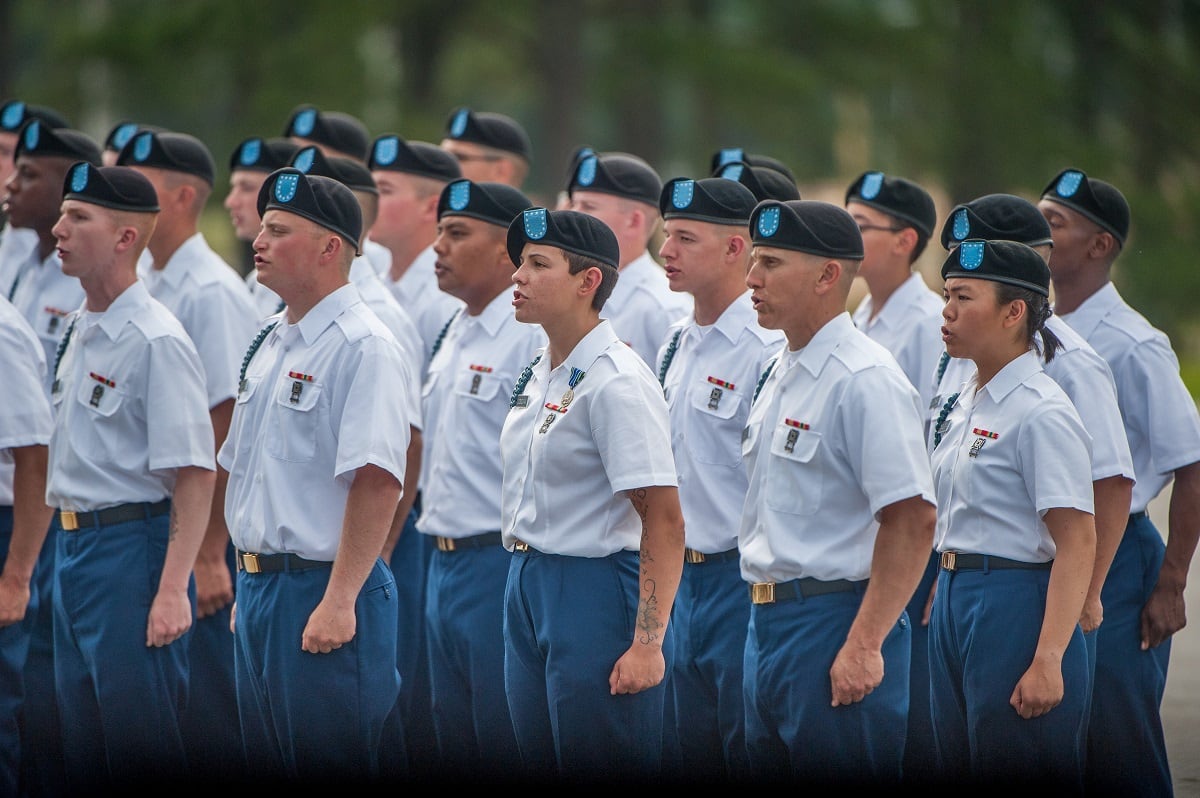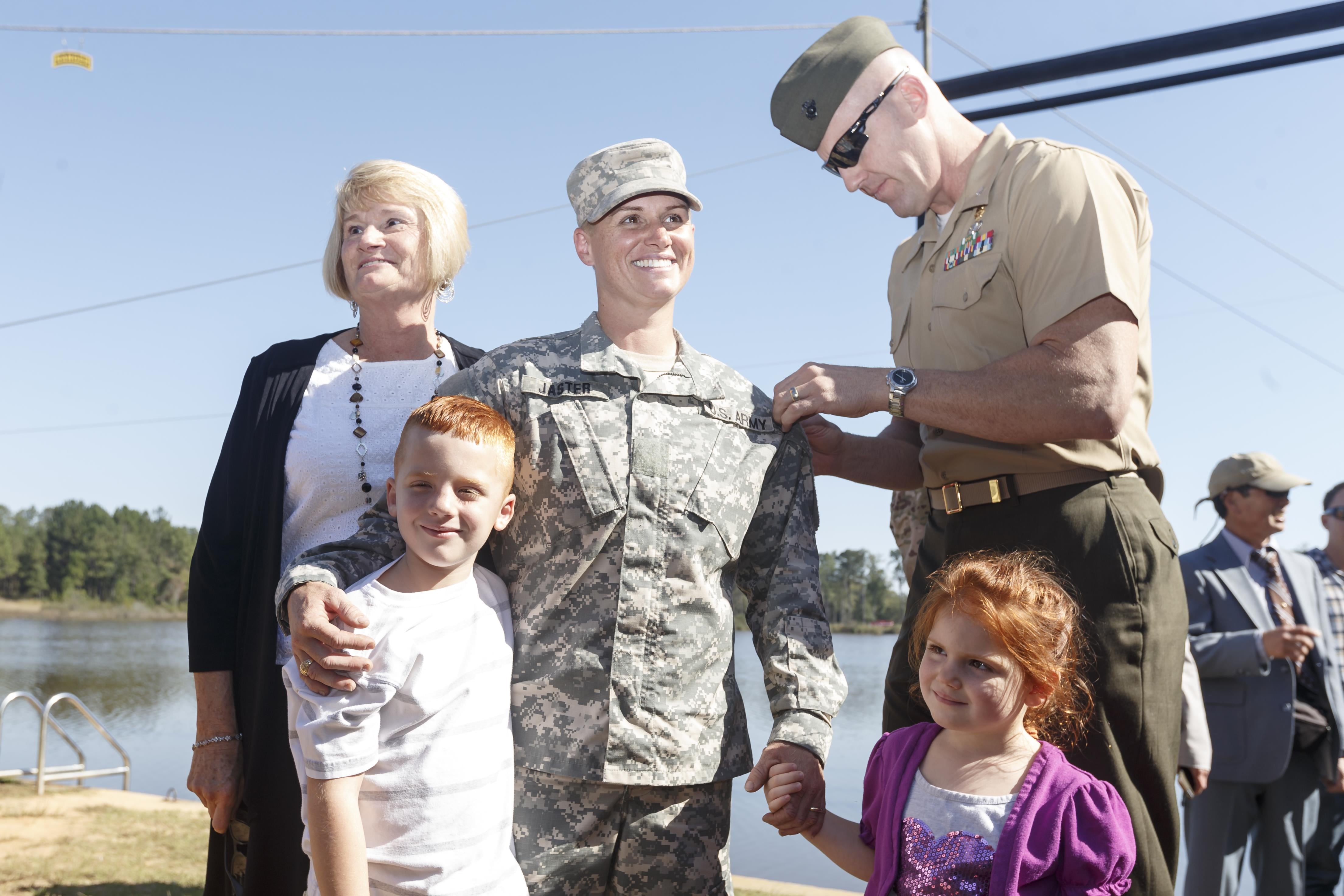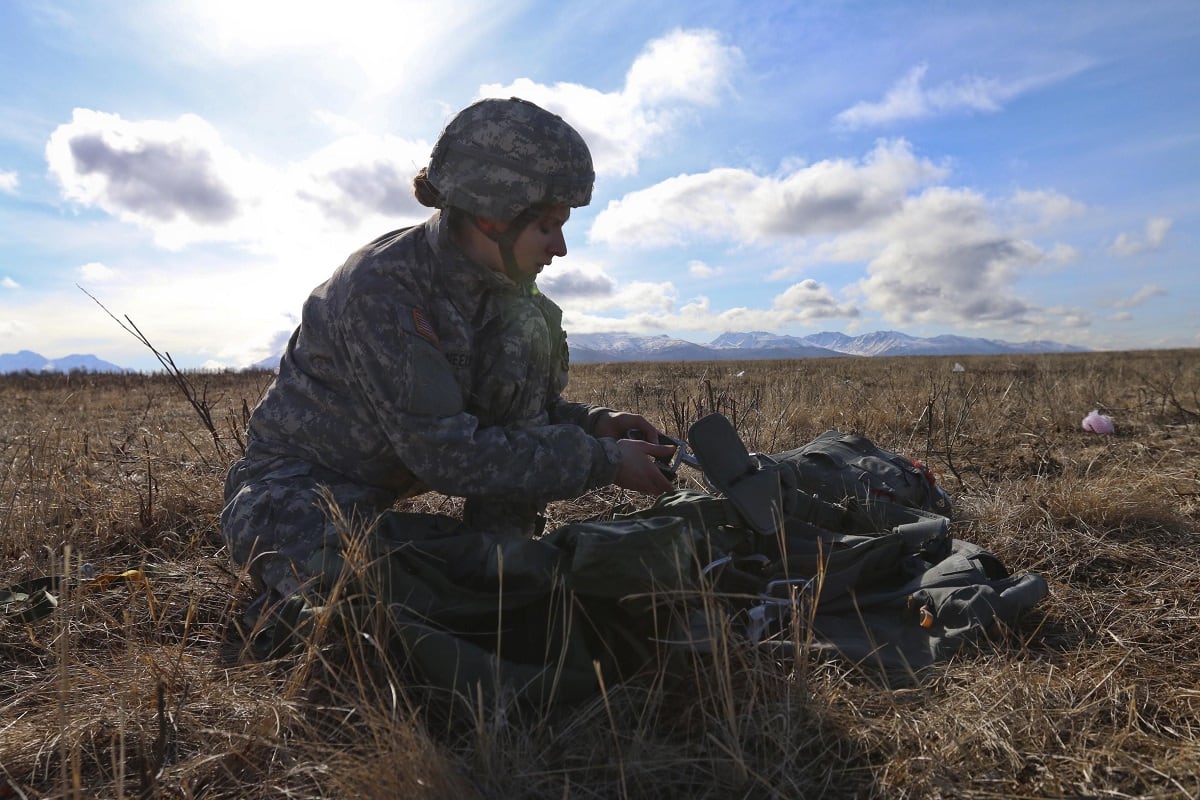Women with EIBs: Should the Army give them a shout-out? Or treat them like everyone else? Two women who are veterans offered Army Times their two different views. Here’s one of them:
Last November, 387 out of 1,000 candidates passed the qualifications and earned the Expert Infantryman Badge (EIB). Of those 387, six were women — the first women to achieve the badge, yet the public has heard little to nothing about this historic step. In keeping hush, the Army has done itself a great disservice.
Reports last year show that the Army is struggling to meet new recruiting demands, and in turn lowering recruiting requirements to fill their ranks. This has been the wrong approach. Instead of lowering standards, the Army should smartly expand its pool of potential candidates.
One approach adopted by the Marine Corps has been recruiting alpha-females often found in top athletic programs across the nation. Those women are exactly the type who would be motivated by achieving an EIB. Over the past three years, the Army has taken steps to recruit more females, including making more female recruiters. In many regards, it has worked.
RELATED

Female enlistments have steadily risen over the years. Still, women only make up 13.2 percent of the enlisted Army ranks. By highlighting the historic accomplishments of women to the public, the Army can entice more women to sign up — opening the pool of candidates and allowing the Army to choose the best to be future soldiers.
The military has a saying: praise in public, admonish in private. While these women shouldn’t be treated as more than their male peers, their accomplishment should be publicly lauded to motivate fellow female soldiers. Studies into female representation in Hollywood have shown the importance of women, and minority groups, being represented. These findings can logically be applied here.
Soldiers can’t be what they can’t see.
If women soldiers never see other women in leadership positions, or achieving at all levels in all areas, they’re less inclined to strive for those achievements themselves. If the Army wants to recruit and retain women in order to ensure they have the best soldiers at top-levels, they should publicize the accomplishments of those women blazing the path.

In addition to any gendered argument, this is a good general PR story, and the Army always needs good PR. As Truman once wrote, the Marine Corps has a propaganda machine that rivals Soviet Russia, and it works, because it consistently pushes out the best faces and best stories from its ranks.
The Army has a chance to appeal to the public’s progressive side while highlighting the strict standards upheld to their more traditional fans. In the midst of the #metoo movement, annual women’s marches, and pushes to reform the military justice system, the Army has a chance to show the public how integration is supposed to work.
Some might argue that these achievements should not be publicized or celebrated for the safety of the women who achieved them, and they have a point. Women breaking barriers in to traditionally male organizations have faced harassment and even threats, but we need to stop those actions, not hide the achievements of women because others act badly.
The Army did this expertly in 2015 when they celebrated the first female graduates from the Ranger School, while avoiding a media frenzy overshadowing their achievements. The media, and the majority of service members, should understand that military members speaking to the media are doing so, not out of personal desire, but at the behest of the DoD and in furtherance of DoD policies.
RELATED

But emphasizing that the publicizing of these events is the decision of Big Army and not individual soldiers, the DoD could capitalize on the achievements of individuals for the sake of the group while still shielding soldiers from accusations of grandstanding and attention-seeking.
To go further, one could argue that NOT highlighting these historic steps, by allowing women the option of “no comment,” we’re actually giving them special treatment at detriment of the Army and DoD. Men awarded for historic gallantry are not afforded the option of quiet ceremonies, women shouldn’t either.
Women don’t inherently need extra accolades or attention. Women continue to break barriers and meet standards once thought to be impossible; but, to act as if these accomplishments aren’t unique or empowering is to disregard decades of male preference and misogyny.
Moreover, it fails to capitalize on a good-news story with potential far-reaching benefits in recruitment and advancement.
It’s not about elevating these women’s egos or even assuaging the social justice folks, it’s about building a better Army.
Maggie Seymour has served as a Marine Corps intelligence officer with deployments to Iraq, Afghanistan and Kuwait. She transitioned to the Marine Corps Reserve last year. She is a graduate of Expeditionary Warfare School and Command and Staff College through Marine Corps University, and a fellow at High Ground Veterans Advocacy.





